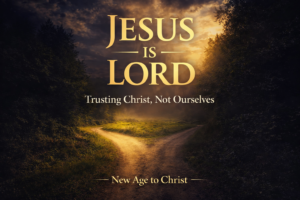⏱️ Estimated Reading Time: 12 min read
Editors note: The purpose of this series is to help our readers think through what discipleship is and how to embrace the Cross of Christ in all of life.
- Dave looked at learning the key to true contentment and joy in the Lord.
- Nick wrote on the three spiritual stages of a believer’s life.
- Dave wrote on the cross of Christ displayed in discipleship.
- Mathew Sims wrote on five integral reasons mature disciples of Christ need sleep.
- Today Dave writes on the glory of the Cross displayed in daily following Christ in everyday life.
**************************************************
 Luke 9:24-26, “For whoever would save his life will lose it, but whoever loses his life for my sake will save it. For what does it profit a man if he gains the whole world and loses or forfeits himself? For whoever is ashamed of me and of my words, of him will the Son of Man be ashamed when he comes in his glory and the glory of the Father and of the holy angels.”
Luke 9:24-26, “For whoever would save his life will lose it, but whoever loses his life for my sake will save it. For what does it profit a man if he gains the whole world and loses or forfeits himself? For whoever is ashamed of me and of my words, of him will the Son of Man be ashamed when he comes in his glory and the glory of the Father and of the holy angels.”
If we are going to accept the terms of discipleship and follow Jesus to the very death, then we must have some supremely compelling reasons for doing so. Jesus spells out the reasons here in Luke 9:24. This verse is one of the great paradoxes of the Christian faith- the tradeoff of discipleship: to save your life is to lose it, but to lose your life for Jesus sake is to lose it.
What does it mean to save your life, and what does it mean to lose it? The manner of Jesus expression is important. He speaks first of those who would save their lives. Those who seek to do that will not save themselves. In other words, their aspiration is self-preservation. Their ambition in life is what they to do to protect themselves.
People who want to save their lives in this sense believe that their satisfaction and security are up to them. They pursue their careers with blind ambition, working so hard that there is little time for anything else, even the people they claim to care about. They organize their lives around their entertainments and the pleasures they like to pursue.
They want to get what they want to get out of life, so they keep their lives to themselves. They are not willing to make any costly interpersonal investments in the kingdom of God. They call themselves Christians but are not willing to suffer for the cause of Christ. They never go anywhere difficult or dangerous with the gospel. There is a tradeoff to this.
People who want to save their lives end up losing them. The lose here suggests a total forfeit. What we lose in seeking our own salvation is absolutely everything, even our very lives. The case here is not theoretical but factual. Jesus is speaking about something more than being willing to lose our lives; He is speaking about actually giving up our lives for Him. This is in keeping with the terms of discipleship, which demand that we carry the instrument of our own crucifixion with us wherever we go.
God has not given us our lives to keep for ourselves, but to give away for him. Franklin Pyles was a Wheaton college student who lived a life of poverty among the Palestinians. While Pyles was giving his life for Jesus in the summer of 2004 when he was killed in a tragic accident. In both his life and death, Pyles confirmed the truth of something he had written about the cross and discipleship. He said, “To give is merely to part with something that we possess. To sacrifice is to part with something that we possess, and will miss. There is a certain pain present in sacrifice that is not found in mere giving. God did not merely give us forgiveness, but sacrificed Himself in order to give us redemption. It is this very cross of sacrifice that we are called to take up in order to follow Jesus.”
This trade-off Jim Elliot to said is, “He is no fool who gives what he cannot keep to gain what he cannot lose.” Elliot was one of the five famous missionaries to Ecuador who were killed by the Auca Indians in 1956. The Aucas were headhunters, and Elliot knew the danger of going to them.
He was willing to give up what he could not keep- life itself in order to give them the gospel. He prayed, “Father take my life, yea, my blood if Thou wilt, and consume it with Thine enveloping fire. I would not save it, for it is not mine to save. Have it, Lord, have it all. Pour out my life as an oblation for the world.” Elliot’s prayer was answered- his life blood was poured out as an offering to God, but he was no fool because in losing his life for Jesus, he gained something he could never lose: the everlasting pleasure of God.
We do not have to become martyrs to gain this prize for there is more than one way to lose our lives. We lose them by giving ourselves completely over to Jesus in faith. We lose them by living for others and not for ourselves. We lose them by showing kindness to strangers and compassion to children in distress. We lose them by giving people the gospel even if they end up rejecting it and rejecting us.
We lose our lives by giving sacrificial support to the ministry of God’s Word locally and internationally. As we give our lives away by the grace of God we end up saving them- this is the tradeoff that compels us to take up the cross of discipleship. The tradeoff of discipleship forces us to make some serious choices. Will we take up our cross or leave it behind? Will we keep our lives for ourselves or give them away for Jesus?
The decisions we make have eternal consequences. Jesus wanted to make sure that people knew how to calculate their alternatives. He took the person who wanted to save his life and placed him in the best of all possible circumstances. Jesus asked whether all this would be worth the price of a person’s soul in Luke 9:25. The question was a rhetorical one, but the answer is that it profits no one to seek after material gain.
If not even the entire world can offset the cost of losing your soul how much less the things that are in the world. Consider everything the world has to offer: proud ambitions, monumental achievements, exciting entertainment, and luxurious pleasures. Then consider the smaller treasures you strive for every day the purchases you are planning to make, the pleasures you feel you cannot live without- the position you are trying to gain. Is it really worth it to let these things stand in the way of obedience to Christ? Are they worth the price of your soul?
Jesus was arguing from the greater to the lesser here. If a man’s soul is not worth the world, then it is not worth anything in the world either. Jesus was also speaking of eternity. The reason worldly things do not profit is that our souls are bound for either heaven or hell.
Luke 9:26 places the losing and saving of our souls in the context of the final judgment. Jesus knew that one day He would judge the world. He was looking beyond His cross to the crown that He will receive on the last day. He will come again in all His glory- His own glory and the glory of His Father, with all the heavenly angels. On that day He will judge every person who ever lived.
He will render the final verdict that will determine our eternal destiny. Some He will welcome into the joy of his Father’s heaven; others he will condemn to the fires of hell. What great joy there will be for people Jesus acknowledges as His own disciples. Consider as well what dreadful terror awaits those who will be abandoned by God.
J.C. Ryle said, “To lose or forfeit one’s self, is to lose God, and Christ, and heaven, and glory and happiness, to all eternity. It is to be cast away for ever, helpless and hopeless in hell.” Who will suffer this great loss? Those who are ashamed of Jesus Christ, and of His words, and who, therefore, refuse to deny themselves and take up the cross of discipleship. This is a sobering warning because there are times when we too are tempted to be ashamed of Christ.
We hesitate to let people know that we are Christians. We are too timid to speak a word in His defense, or take a stand on a moral issue. We are afraid to read our Bibles or pray in public. If we are so ashamed of Jesus will He be ashamed of us? The words of Jesus haunt us because there are times too many times when we are ashamed of Him.
As haunting as these words must have been they are all the more haunting for His disciples. They were even more ashamed of Jesus than we are, and at the time when it mattered the most. As Jesus went to His own cross- unashamed to take our guilt upon Himself, unashamed to die naked for our sins- His disciples were ashamed of Him.
Rather than taking up their crosses, they left Jesus to take up His cross alone and afterward, rather than proclaiming Jesus and His word, they gathered in secret shame. Jesus had grace for His disciples. He went to the cross to die for their shame, and when He was raised from the dead, He went back to give them the courage to meet the terms of His discipleship. By the power of the Holy Spirit, He enabled them to give their lives away for Him and for His gospel. One day they will receive the blessed reward that Jesus has promised to all His disciples.
Luke 9:27, “But I tell you truly, there are some standing here who will not taste death until they see the kingdom of God.”
To taste death means to die so Jesus was saying that some of His disciples would not die until they had seen the kingdom of God. The Kingdom of God is the rule of God. Did the disciples see this? Jesus was talking about something that happened long before His second coming when His kingdom will come in all its glory. Some say this promise relates to the resurrection, or to the ascension when Jesus left his disciples and returned to heaven in a cloud of glory.
Still others say Jesus was talking about sending the Holy Spirit at Pentecost. All of these events are connected to the kingdom in one way or another and reveal its heavenly glory. Perhaps Jesus was talking about the transfiguration which is the next incident in the Gospel of Luke, and in which three of the disciples saw Him in all the glory of His everlasting kingdom.
The experience of these disciples was exceptional, but Jesus has the same grace for us. He died for our shame as much as anyone else’s. Now the Savior who suffered rejection for us is with us as we endure rejection for Him. Soon He will welcome us into His Father’s glory if only we will answer His call to take up the cross of discipleship.
Biblical discipleship begins with denying oneself, taking up the Cross, and following Christ. Biblical discipleship is about daily obeying Christ’s commands by His grace. To be a disciple means to learn from and obey the Master.
The glory of the Cross is displayed in discipleship by a commitment to deny oneself. The glory of the Cross is displayed in discipleship by a commitment to take up the Cross of Christ. The glory of the Cross is displayed in discipleship by a commitment to follow Jesus. The glory of the Cross is displayed in discipleship by believers who refuse to compromise the gospel. The glory of the Cross is displayed in discipleship by a commitment to raise up leaders, mentor, and coach them. The glory of the Cross is displayed in discipleship by a commitment to biblical faithfulness.
The glory of the Cross is displayed in discipleship by a commitment of a husband and wife committed to dealing with difficult times and working through difficult issues. The glory of the Cross is displayed in discipleship by people who love Jesus more than they love themselves and are committed to His gospel for His glory forever! Those who glory in the Cross take pleasure and joy in Christ knowing they are part of His redemptive plan to seek and save the lost and fulfill His Commission.




